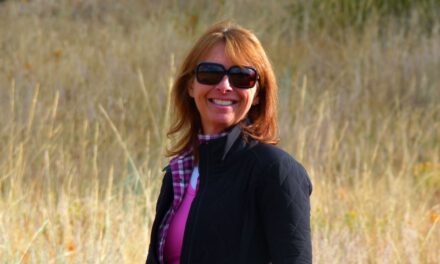What do we do when we no longer need to get up at a certain time and get dressed for work? How will we approach the hours in our day in a way that is engaging and fulfilling for each of us?
My husband and I feel confident, despite the current market, about our financial situation upon retirement. We have a solid financial planner, lots of conversation about the lifestyle we hope to enjoy and what it will cost, and we re-examine these goals annually making any necessary adjustments.
For most people approaching retirement, the bigger question is how we want those years to be spent. Retirement and the sudden availability of time may seem like a dream come true, but the truth is not giving any thought to how one will spend their days results in a lack of meaning or direction. What do we do when we no longer need to get up at a certain time and get dressed for work? How will we approach the hours in our day in a way that is engaging and fulfilling for each of us?
Many of us have spent a great deal of time on the financial aspects of retirement planning. But there is more to retirement planning than finances in this new phase of life. One that requires exploration, curiosity and honesty for success.
Sometimes it is easier to know what I don’t want; the thought of spending all my free time playing golf or pickle ball or engaged in endless social activity horrifies me. Those things are fine, but I need more than play; I need meaning and purpose.
I’ve personally always chafed at the word retirement, defined as the leaving of one’s work. As an artist, I don’t foresee ever ceasing to create, whether in photography or writing, or through other medium. For me, this work is far more than generating income; it’s what I was meant to do. I cannot imagine ceasing to enjoy sharing what I see and learn with others. But there is no denying that this work will look different.
My life will look different. The question is how?
Arthur Brooks “From Strength to Strength,” was given to me by a dear friend who had accidentally ordered two copies. According to the author’s website, “At the height of his career at the age of 50, Arthur Brooks embarked on a seven-year journey to discover how to transform his future from one of disappointment over waning abilities into an opportunity for progress.” Brooks makes the point that though our brains have a decline in fluid intelligence as we age, crystallized intelligence actually improves. Brooks argues that though our intelligence changes, that is not necessarily bad; it’s just different.
The way I view this through the lens of retirement is that a new adventure will begin; one that incorporates my life experience and wisdom.
I am in a transitionary period. I am more interested in project photography or photojournalism and personal essay than creating income. This work is immensely satisfying, and is work I hope makes a difference, however small, in the lives of others. It’s lovely to let curiosity and my unique life experiences lead to what I want to explore.
Rob and I have begun the adventure of thinking about what we want our lives to look like in ten years or so. The following questions came from an article in US News and I began answering them in journal entries one at a time. They cannot be glibly answered and require honesty and thought. We have decided to each answer these questions individually and then compare our answers.
- What does being retired mean to you?
- What do you want to add to your life and eliminate from your life?
- What are your travel plans?
- What will you be passionate about?
- Is it important to be close to family?
- Do you want to remain in the community where you live or move somewhere else?
- How do you feel about downsizing?
- How structured do you want your life to be?
- Do you plan to start a business after you retire?
- What activities do you plan to engage in?
- What do you want your social life to look like?
- Which people are the most important to you?
- What new things do you want to learn?
- What’s on your bucket list?
- What will provide a sense of purpose for you after you retire?
- Do you want to be of service to others in some way such as volunteering or mentoring?
- Do you want to spend all or most of your money on yourself or leave an inheritance?
- How do you want to be remembered?
The transition to a phase in life where paid work is no longer the priority is enormous. This is your life. You get to write how it will unfold in a way that brings you fulfillment. Facing this with planning and a sense of adventure and truth can make all the difference in the quality of your retirement.





